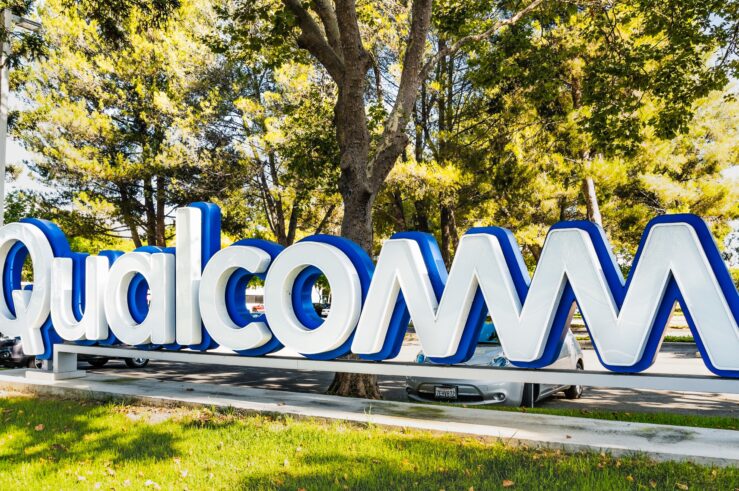Showing results for: “digital markets act”
Mi Mercado Es Su Mercado: The Flawed Competition Analysis of Mexico’s COFECE
Mexico’s Federal Economic Competition Commission (COFECE, after its Spanish acronym) has published the preliminary report it prepared following its investigation of competition in the retail electronic-commerce market (e.g., Amazon). The report finds that: there are elements to preliminarily determine that there are no conditions of effective competition in the Relevant Market of Sellers and in ... Mi Mercado Es Su Mercado: The Flawed Competition Analysis of Mexico’s COFECE
FTC v. Qualcomm: A Case of Regulatory Capture?
There is little doubt that the decision in May 2019 by the Northern District of California in FTC v. Qualcomm is of historical importance. Unless reversed or modified on appeal, the decision would require that the lead innovator behind 3G and 4G smartphone technology renegotiate hundreds of existing licenses with device producers and offer new ... FTC v. Qualcomm: A Case of Regulatory Capture?
Richard Epstein on The Dangerous Allure of Behavioral Economics: The Relationship between Physical and Financial Products
Richard A. Epstein is the Laurence A. Tisch Professor of Law, New York University School of Law, The Peter and Kirsten Bedford Senior Fellow, The Hoover Institution, and the James Parker Hall Distinguished Service Professor of Law, The University of Chicago. Few academic publications have had as much direct public influence on the law as ... Richard Epstein on The Dangerous Allure of Behavioral Economics: The Relationship between Physical and Financial Products
Erin O’Hara on The Free Market Side of Behavioral Law and Economics
Behavioral law and economics (“BLE”) can influence legal policy analysis and regulation in many ways. On balance, it is not at all clear that this new paradigm undermines a policy commitment to markets. From one vantage point, the BLE movement can be said to help preserve markets. Importantly, those using the paradigm often start with ... Erin O’Hara on The Free Market Side of Behavioral Law and Economics
Making Rules vs Ruling
In an effort to fight inflation, the Federal Open Market Committee raised interest rates to 20% over the course of 1980 and 1981, triggering a recession that threw more than 4 million Americans, many in well-paying manufacturing jobs, out of work. As it continues to do today, the committee met in secret and explained its ... Making Rules vs Ruling
Does the Supreme Court Deem Price Discrimination to be an “Anticompetitive” Effect of Tying?
One of my summer writing projects is a response to Einer Elhauge’s recent, highly acclaimed article, Tying, Bundled Discounts, and the Death of the Single Monopoly Profit Theory. In the article, which appeared in the December 2009 Harvard Law Review, Elhauge defends current tying doctrine, which declares tie-ins to be per se illegal when the ... Does the Supreme Court Deem Price Discrimination to be an “Anticompetitive” Effect of Tying?
March-Right-on-In Rights?
The National Institute for Standards and Technology (NIST) published a request for information (RFI) in December 2023 on its “Draft Interagency Guidance Framework for Considering the Exercise of March-In Rights.” It’s quite something, if not in a good way. March-In Rights Provide Very Limited Exceptions to Intellectual-Property Rights What are “march-in” rights? In brief, they ... March-Right-on-In Rights?
The Marketplace of Ideas: Government Failure Is Worse Than Market Failure When It Comes to Social-Media Misinformation
Today marks the release of a white paper I have been working on for a long time, titled “Knowledge and Decisions in the Information Age: The Law & Economics of Regulating Misinformation on Social-Media Platforms.” In it, I attempt to outline an Austrian law & economics theory of state action under the First Amendment, and ... The Marketplace of Ideas: Government Failure Is Worse Than Market Failure When It Comes to Social-Media Misinformation
What’s really motivating the pursuit of Google?
I have an op-ed up at Main Justice on FTC Chairman Leibowitz’ recent comment in response the a question about the FTC’s investigation of Google that the FTC is looking for a “pure Section Five case.” With Main Justice’s permission, the op-ed is re-printed here: There’s been a lot of chatter around Washington about ... What’s really motivating the pursuit of Google?
Kieff on Carrier’s Innovation in the 21st Century
I, too, join the rest of the participants in congratulating Michael Carrier on this great book about this great topic. I have enjoyed reading Michael’s work in the past and I enjoyed meeting him at a conference last year. He is a wonderfully warm, bright, and engaging person. Although I wish that I had more ... Kieff on Carrier’s Innovation in the 21st Century
The District Court’s FTC v. Qualcomm Decision Rests on Impermissible Inferences and Should Be Reversed
Last week the International Center for Law & Economics (ICLE) and twelve noted law and economics scholars filed an amicus brief in the Ninth Circuit in FTC v. Qualcomm, in support of appellant (Qualcomm) and urging reversal of the district court’s decision. The brief was authored by Geoffrey A. Manne, President & founder of ICLE, and ... The District Court’s FTC v. Qualcomm Decision Rests on Impermissible Inferences and Should Be Reversed
Chairman Wheeler’s new set-top box proposal: from unmitigated disaster to plain old disaster
Imagine if you will… that a federal regulatory agency were to decide that the iPhone ecosystem was too constraining and too expensive; that consumers — who had otherwise voted for iPhones with their dollars — were being harmed by the fact that the platform was not “open” enough. Such an agency might resolve (on the ... Chairman Wheeler’s new set-top box proposal: from unmitigated disaster to plain old disaster









